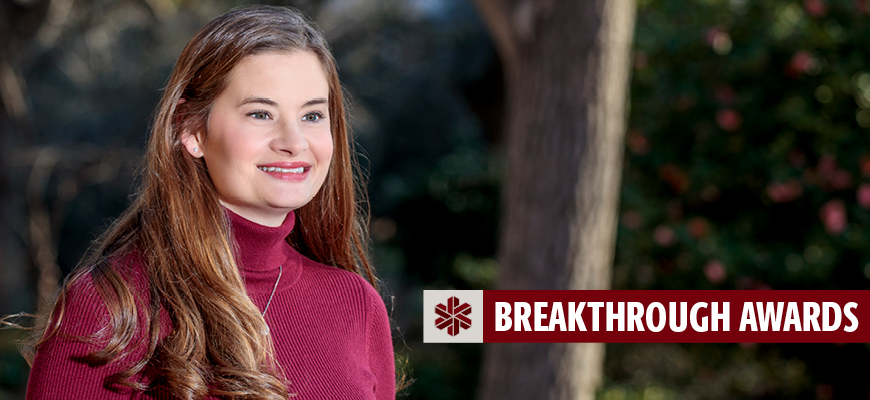
Breakthrough Star: Kristen Seay
Associate professor of social work aims to improve outcomes for foster children
Posted on: July 29, 2022; Updated on: July 29, 2022
By Craig Brandhorst, craigb1@mailbox.sc.edu, 803-777-3681
Before she entered academia, Kristen Seay knocked on doors as a social work case manager in Alabama and Georgia. Now, the associate professor of social work is taking on child maltreatment and welfare more broadly through her research.
“When I started doing social work, I felt that we just didn't have enough programs or support to offer families who were really struggling,” she says. “I realized that my work in child welfare and direct practice was not going to be enough. I wanted to go back and be able to help families in a larger way.”
One way Seay is trying to change that dynamic is through a pilot in-home parenting program designed to addresses the role of child behavior and healthy lifestyles in school readiness. Conducted through the university’s Research Center for Child Well-Being — and funded through a grant from the National Institute of General Medical Sciences — it reflects Seay’s holistic approach to promoting healthy families.
“My work overall focuses on the prevention of child maltreatment and child welfare,” she says. “But there’s also this larger issue of how we make sure that families are healthy and how we raise children who are prepared to take on the world and life and do well in school.”
Through the school readiness project, Seay oversees a team of three practitioners who meet with families of preschoolers in their homes over four months and work with them to identify and address related issues of health and behavior at the same time.
Emotional maltreatment is so rare to substantiate, but we believe it's one of the more common types of experiences that children actually have.
Kristin Seay
As Seay explains, parents typically discuss their child’s sleep, physical activity and diet with their pediatrician, but then save the questions about tantrums and whining for a social services worker. In reality, though, children often exhibit both sets of issues at the same time, with each variable affecting the others.
The project aims to have recruited 60 families by the time the pilot study concludes in 2023. Pending successful outcomes, the goal is to pursue funding for a larger R1 grant and work with a much larger sample of approximately 200 families.
Seay is also PI on a web-based health and education platform funded by the Duke Endowment. She is joined on that project by fellow social work faculty members Sue Levkoff and Cynthia Flynn, and integrated information technology faculty Benjamin Schooley and Neset Hikmete.
The statewide platform, which was developed in collaboration with faculty from the College of Engineering and Computing, is administered by the South Carolina Department of Social Services. Its primary function is to provide secure records storage for foster parents to access information about children in their care.
That’s critical, according to Seay, because some foster children frequently change foster families and case managers. “Children can move to numerous placements in a single year,” she says. “And sometimes there's critical information that might not get conveyed during a one-on-one conversation with the case manager.”
If a foster child changes families, access changes as well. As the child’s legal guardian, DSS maintains control of the child’s file — and only shares that access with the case manager and the child’s current foster parents.
But it’s not only a way to track areas of concern. The platform also provides a way to document and track positive developments in a foster child’s physical and emotional development. Maybe they achieved something on a sports team or in their Brownie troop, or they received a perfect attendance report—or maybe a young child rolled over for the first time.
“Sometimes there’s information that’s really meaningful that can get lost between one foster family and the next,” says Seay.
In a third project, Seay has been tracking adverse childhood experiences, or ACES, through a partnership with Children’s Trust of South Carolina and with funding from the BlueCross BlueShield of South Carolina Foundation, an independent licensee of the Blue Cross and Blue Shield Association. Her particular focus is on mental injury and neglect and the cumulative effects they can have on a child’s wellbeing long term.
Mental injury can run the gamut from excessive name calling to more abusive behavior, but it can be a slippery thing to track and prove. She hopes the data collected will help contextualize the problem going forward.
“Emotional maltreatment is so rare to substantiate,” she says, “but we believe it's one of the more common types of experiences that children actually have.”